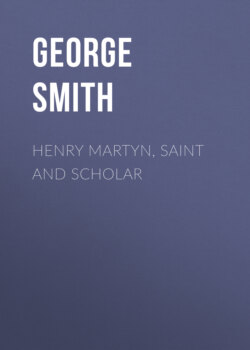Читать книгу Henry Martyn, Saint and Scholar - George Smith - Страница 19
На сайте Литреса книга снята с продажи.
THE NINE MONTHS' VOYAGE—SOUTH AMERICA—SOUTH AFRICA, 1805-1806
ОглавлениеThe East India fleet had been detained off Ireland 'for fear of immediate invasion, in which case the ships might be of use.' The young chaplain was kept busy enough in his own and the other vessels. In one of these, the Ann, there was a mutiny. Another, the Pitt, was a Botany Bay ship, carrying out 120 female convicts. Thanks to Charles Simeon, he was able to supply all with Bibles and religious books. But even on board his own transport, the Union, the captain would allow only one service on the Sabbath, and denied permission to preach to the convicts. The chaplain's ministrations between decks were continued daily, amid the indifference and even opposition of all save a few.
At last, on August 31, 1805, the Indiamen of the season and fifty transports sailed out of the Cove of Cork under convoy of the Diadem, 64 guns, the Belliqueuse, 64 guns, the Leda and Narcissus frigates, on a voyage which, after two months since lifting the anchor at Portsmouth, lasted eight and a half months to Calcutta. The Union had H.M. 59th Regiment on board. Of its officers and men, and of the East India Company's cadets and the officers commanding them, he succeeded in inducing only five to join him in daily worship. His own presence and this little gathering caused the vessel to be known in the fleet as 'the praying ship.' The captain died during the voyage to the Cape. One of the ships was wrecked, the Union narrowly escaping the same fate. Martyn's Journal reveals an amount of hostility to himself and of open scoffing at his message which would be impossible now. He fed his spirit with the Word of God, which he loved to expound to others. Leighton, especially the too little known Rules for Holy Living, was ever in his hands. Augustine and Ambrose delighted him, also Hooker, Baxter, Jonathan Edwards, and Flavel, which he read to any who would listen, while he spoke much to the Mohammedan Lascars. He worked hard at Hindustani, Bengali, and Portuguese. Not more faithfully reflected in his Journal than the tedium of the voyage and the often blasphemous opposition of his fellows are, all unconsciously, his own splendid courage, his untiring faithfulness even when down with dysentery and cough, his watchful prayerfulness, his longing for the spread of Christ's kingdom. As the solitary young saint paced the deck his thoughts, too, were with the past—with Lydia, in a way which, even he felt, did not leave him indisposed for communion with God. From Funchal, Madeira, he wrote to Lydia's sister: 'God knows how dearly I love you, and Lydia and Sally (his younger sister), and all His saints in England, yet I bid you all an everlasting farewell almost without a sigh.' His motto throughout the voyage was the sentence in which Milner characterises the first Christians:
